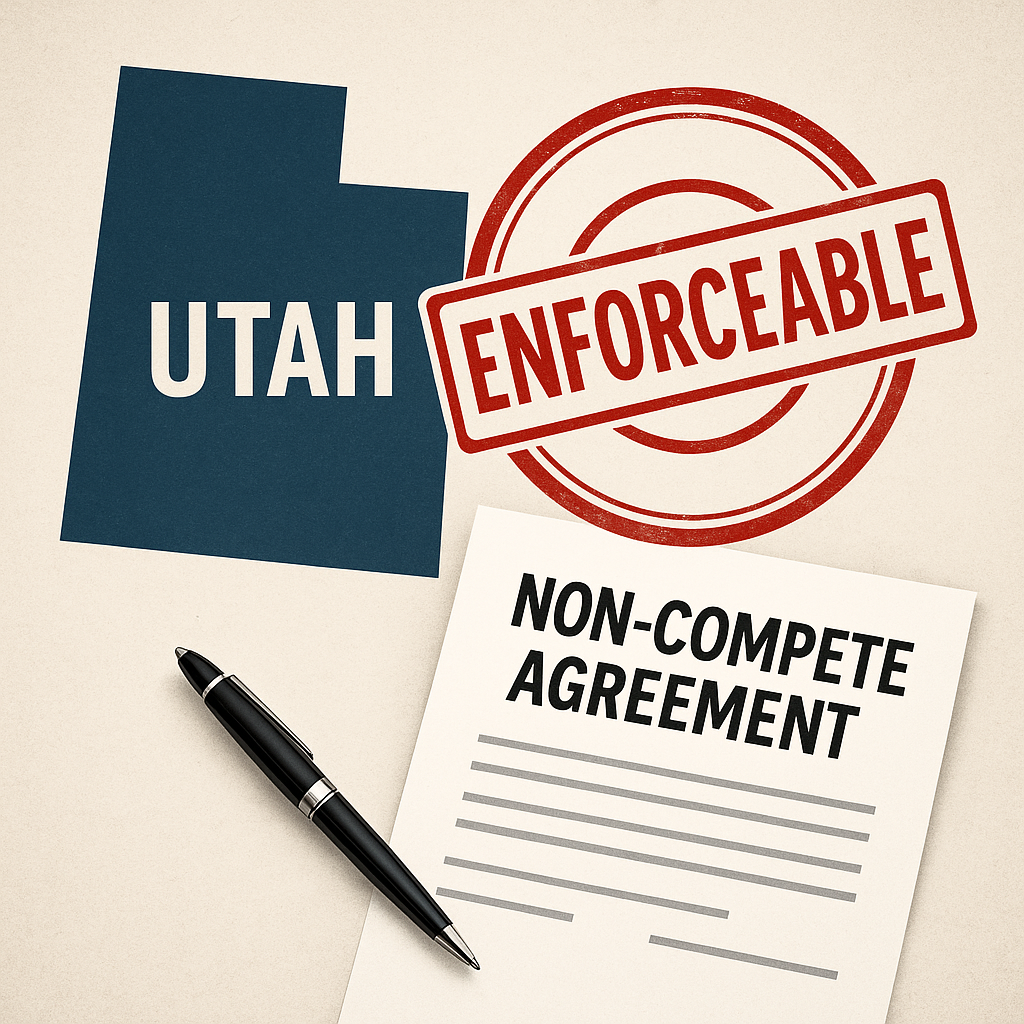Non-Compete Agreements in Utah What Workers and Employers Must Know
Plain-English rules, limits, exceptions, and your action plan under Utah law
Utah Law Explained is for Utah workers and small businesses. Non-compete agreements here are enforceable only under strict conditions, and many are not legal as written. Utah limits how long these contracts can last, who they can cover, and what they can restrict.
This guide explains the statute, what courts mean by reasonable, who is covered by recent reforms, and the practical steps to sign, challenge, or narrow a clause. You will also see physician and gig-worker updates, common drafting mistakes, and remedies that actually work.
By the end, you will have a Utah-specific roadmap to handle non-compete agreements with confidence. This is legal information, not legal advice. When in doubt, talk with a Utah employment attorney.
Utah Rules on Non-Competes
Utah is an at-will employment state, but non-competes are judged under contract law and state statute.
Time Limit
For most employees, a non-compete cannot exceed one year after employment ends. Longer periods are unenforceable under Utah Code §34-51-201.
Consideration
There must be valid consideration. Initial employment or a promotion usually satisfies this, but midstream agreements need something real in return.
Industry Exceptions
Reforms limit non-competes for many medical professionals. 1099 healthcare workers generally cannot be bound by non-competes.
Scope Matters
Even if within one year, a clause must be reasonable in geography, duration, and protected interests or it risks being struck.
Reasonableness Factors
Courts weigh whether the restriction reasonably protects legitimate interests without placing undue hardship on the worker.
Courts can refuse enforcement if the balance tips against the employee. Narrow and specific beats broad and vague.
Coverage, Practical Moves, and Remedies
Who Is Covered
If You Are Asked to Sign
Remedies If You Are Bound Now
Statute Snapshot
Step-by-Step Action Plan
Identify Scope
List what is restricted: roles, clients, services, and regions. Compare against your actual job and accounts.
Check the Clock
Confirm the duration is at or under one year from separation. Anything longer is not enforceable for most employees.
Narrow and Document
Propose a smaller territory and role-based limits. Get written edits or an addendum before signing.
Get Advice
Have a Utah employment lawyer review red flags. A short review can prevent a long dispute later.
If Already Bound
Ask for a release or file for a declaratory judgment. Keep records of employer breaches or unpaid amounts.
Need Help Applying This To Your Job?
Every situation is different. A quick consult can clarify your leverage, narrow terms, or map a clean exit plan.
Talk to a Utah AttorneyVideo and Social Learning Hub
Key Takeaways
Most Utah employment non-competes cannot exceed one year after separation and must be reasonable to enforce.
Geography, duration, legitimate interests, and worker hardship drive the court analysis.
Medical roles and 1099 healthcare workers get added protections. Narrow drafting and clear trade secret safeguards work best.
This page is legal information, not legal advice. When in doubt, get counsel before you sign or challenge a non-compete.
Next Step
Ready to protect your career or your business correctly? Use the plan above and get a short legal check before you commit.
Book an Employment ConsultA focused review can narrow terms, confirm statutory compliance, and reduce the chance of later disputes.
